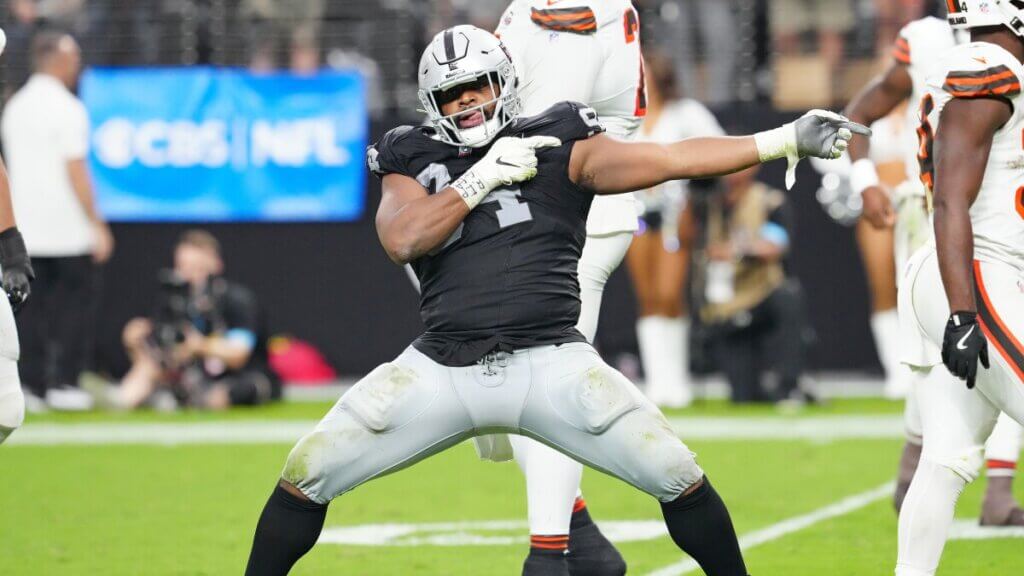We haven’t heard the last of Christian Wilkins following his release by the Las Vegas Raiders, as it’ll cause a showdown with the NFLPA—in doing so, it raises ethical questions.
The Raiders’ risky and costly bet on Wilkins has come to an end in a way that has caused a lot of debate. The organization formally let Wilkins go on July 24, calling him a “terminated vested veteran.” The termination was just a few months after signing him to a four-year, $110 million contract with $82.75 million guaranteed.
But this isn’t your typical roster move—it’s now a legal and ethical flashpoint within the NFL.
Wilkins, a six-year veteran, suffered a foot injury last season, and tensions reportedly grew over how the injury should be treated. According to ESPN, the Raiders believed Wilkins had failed “to maintain his physical condition to play.” However, the NFL Players Association (NFLPA) sees things differently—and they’ve filed a grievance on Wilkins’ behalf.
Christian Wilkins’ release sparks an ethical debate…
The dispute primarily revolves around medical autonomy. Sources indicate that the Raiders advocated for additional surgery, while Wilkins favored an alternative approach. This situation raises bioethical concerns, particularly regarding the principle of autonomy—specifically, an individual’s right to make decisions about their body. Ethicists Beauchamp and Childress define personal autonomy as “self-rule free from controlling interference by others.”
NFL players are protected under Article 39, Section 6 of the Collective Bargaining Agreement (CBA), which allows them to seek a second medical opinion and, if they choose, follow that physician’s advice—even over the team doctor’s—after proper consultation. If Wilkins’ decision not to have surgery was medically reasonable, he was well within his rights to decline it.
The legal stakes are equally significant. The Raiders took away $35.2 million in guarantees that were still in Wilkins’ contract. Therefore, the NFLPA is likely arguing that this action violated both the Collective Bargaining Agreement (CBA) and Wilkins’ injury guarantees. Standard NFL contracts have “skill,” “cap,” and “injury” safeguards to make sure that players are compensated if they are cut for performance reasons or hurt while playing. Wilkins’ camp is likely to say that he was let go because of an injury, not because he wasn’t in shape; therefore, the assurances should still be in place.
This issue isn’t anything new in pro sports…
Disputes like this aren’t unprecedented. A similar battle unfolded in the NHL between Jack Eichel and the Buffalo Sabres over surgical options. That case highlighted how player autonomy remains a hot-button issue across professional sports. While MLB players also control their medical decisions, other leagues like the NBA, NHL, and MLS often give the final say to team doctors.
Now, a neutral arbitrator will decide Wilkins’ fate. If he wins the grievance, the Raiders may still have to pay up—though they’ll likely seek to reduce their liability by crediting any new contract Wilkins signs elsewhere.
In the meantime, Christian Wilkins is free to sign with another team. The Raiders have not publicly commented on the matter, and the NFLPA has declined to speak further.
No matter what happens, this story might set a precedent in the continuing fight between NFL organizations and player autonomy. It shows that business and ethics often clash in pro football.
Related: Raiders Training Camp Observations & Wilkins’ Fallout
*Top Photo: Stephen R. Sylvanie-Imagn Images

